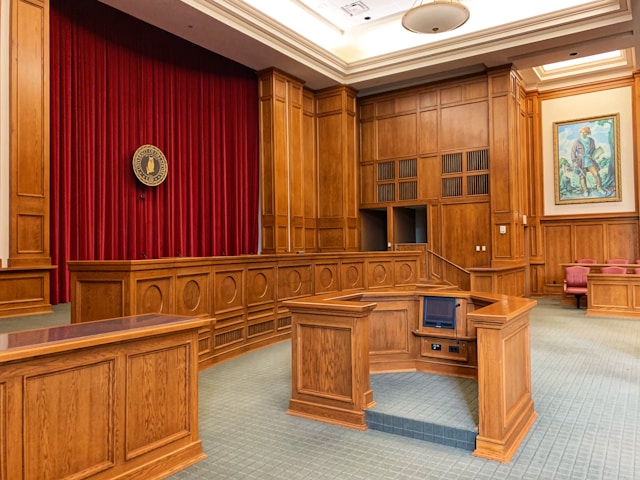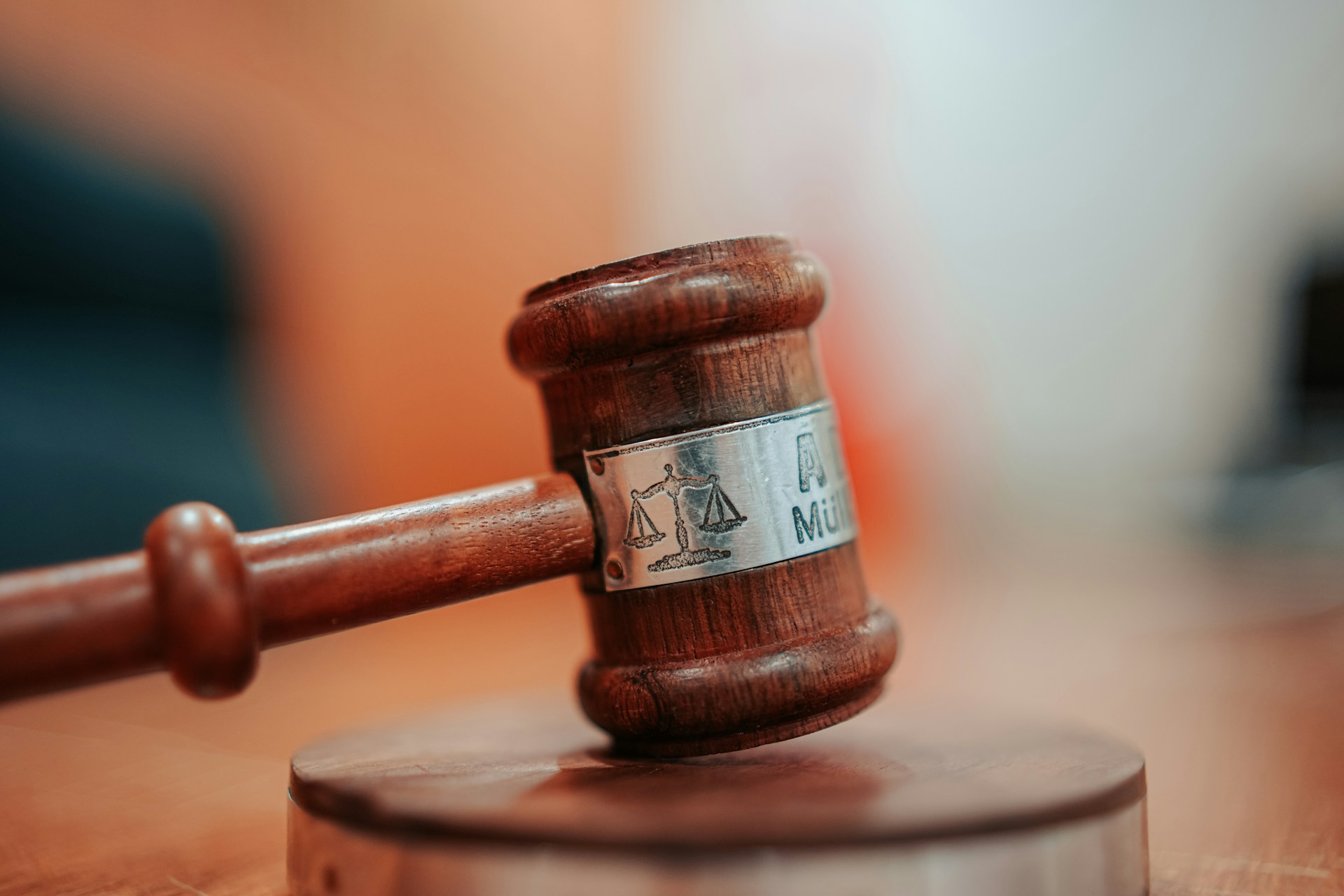Is an Arraignment the Same as a Trial?
News and Resources
If you've ever watched a police procedural on TV you'll hear the term "arraignment" bandied about quite a bit. The thing is TV writers never seem too interested in explaining exactly what an arraignment is. For our part, we get asked to define arraignment all the time and that points to the fact that almost no one in the general population really understands this aspect of the legal system. Many just assume that arraignment and trial are the same thing. But are they? In this post, our crack bail bond agents answer the question "Is an arraignment the same as a trial?"
Learning About the Charges Against You
After you're arrested the police will give you some idea of the charges against you. Those charges will influence the amount of bail you have to pay, or if bail is even being offered to you. If the charges against you are minor a bail schedule will be used, the bail bond company should have you out quickly and that will be the last you hear about the charges until your day in court. But if the charges are more serious the state will schedule an arraignment, (in Colorado this is called a "preliminary hearing") during which time the charges against you will be formalized.
arraignment an act or instance of bringing someone before a criminal court to hear an indictment, or formal charge, against them and to enter a plea in response to that charge.
After you're arrested the police will give you some idea of the charges against you. Those charges will influence the amount of bail you have to pay, or if bail is even being offered to you. If the charges against you are minor a bail schedule will be used, the bail bond company should have you out quickly and that will be the last you hear about the charges until your day in court. But if the charges are more serious the state will schedule an arraignment, (in Colorado this is called a "preliminary hearing") during which time the charges against you will be formalized.
It's possible that during the arraignment you will learn that additional charges have been filed against you since the night you were arrested. It's also possible that during the arraignment the state may drop the charges against you for one reason or another. In which case you'd be free to go. You may also be advised by your attorney to plead guilty during the arraignment. In either of those last 2 cases, the end result is that there will be no trial.

So in a nutshell:
- An arraignment is a short, pretrial hearing.
- Whether you have an arraignment will often depend on the severity of the charges.
- The purpose of the arraignment is to air those charges.
- At the arraignment, the charges may also be dropped or increased.
Should a Lawyer Accompany You to a Preliminary Hearing?
It is not a legal requirement but it is highly recommended because much of what is said during an arraignment is complex legal jargon. If it's a matter of not being able to afford an attorney the court will appoint one for you free of charge (a public defender). You also have the option of representing yourself. But again, unless you are familiar with the vagaries and nuances of the law this is not recommended.
During the arraignment, the defendant or their representative will have the option to waive the formal reading of the charges. This often happens when everyone involved already knows what the charges are and having them read aloud in court would do little but waste a lot of time.
Bail and the Arraignment
Defendants facing pretrial hearings are typically held in custody until the hearing. It's during this hearing that they learn whether or not they will be allowed bail. In all but the most serious cases bail is granted with the amount set by the judge or magistrate. The defense is welcome to challenge the bail amount if they wish, or they can simply accept it. Following the arraignment the defendant can arrange for bail with the bail bond agent of their choice.

Entering a Plea During an Arraignment
Assuming the charges against the defendant were not dropped during the arraignment the final bit of business will be for the defendant to enter a plea. In virtually every case the defendant will plead not guilty, although it is possible that the state and the defense will reach a plea deal.
Most criminal cases these days end in plea deals. If accepted by the court the plea deal will typically result in a reduced sentence in exchange for an admission of guilt, a statement of remorse and perhaps community service. Whether the defendant goes straight to jail after the plea deal is accepted or is set free will depend on the terms of the deal.
If the defendant did not reach a plea agreement with the state the judge will set a court date for the start of the trial.
About the Trial
Now that we understand what an arraignment is and that it occurs prior to any trial it's time to examine what a trial is.
Everyone has the right to a trial before a jury of their peers. However, if everyone insisted on this option court backlogs in the US would stretch into multiple decades. The trial is where evidence for and against the defendant is presented by the defense and the prosecution. By the time you get to a trial, the charges have been finalized and both defense and prosecution have honed their cases.
A typical trial proceeds in the following fashion:

The presentation of evidence
It is the job of the prosecution to present their evidence in a way that demonstrates the guilt of the defendant beyond a reasonable doubt. The defense then gets a chance to refute that evidence and to present evidence of their own demonstrating the defendant's innocence.
Final arguments and instructions to the jury
When all evidence has been presented the prosecution and defense are given a chance to make their final argument directly to the jury. Following that the judge instructs the jury on laws that apply to the case.
The case is turned over to the jury
After the judge provides his or her instructions the jury retreats to the jury room and begins to deliberate. It can take anywhere from less than an hour to many days for the jury to reach a unanimous decision. Should the jury determine the defendant is guilty it will be up to the judge to pass sentence. If the jury finds the defendant not guilty they (the defendant) will be set free immediately.
If it seems no progress is being made the jury may declare themselves hopelessly deadlocked and a mistrial (hung jury) will be declared by the judge. In most (not all) such cases a new trial will be ordered.
While you are not required to have an attorney at your arraignment, it is strongly recommended. A lawyer can help you understand your charges, possible penalties, and advise on how to plead.
If you plead guilty, the judge may proceed with sentencing immediately or schedule a sentencing hearing. Pleading guilty means you accept responsibility for the charges and waive your right to a trial.
Missing an arraignment can lead to serious consequences, including a bench warrant for your arrest. If you missed your court date, contact an attorney or the court immediately to resolve the issue.
Yes, in most cases, you can change your plea later, especially if new evidence arises or if you negotiate a plea deal with the prosecution.
After an arraignment, the case proceeds to pretrial hearings, motions, plea negotiations, or trial, depending on the plea entered and the legal strategy of both sides.
In many cases, the judge will determine bail at the arraignment based on the severity of the charges, flight risk, and criminal history. Some defendants may be released on their own recognizance.
Arraignments are usually brief, lasting anywhere from a few minutes to an hour, depending on the complexity of the case and the number of cases on the court’s docket.
A hung jury occurs when jurors cannot reach a unanimous or legally required majority decision in a criminal trial. This results in a mistrial, and the prosecution must decide whether to retry the case, negotiate a plea deal, or dismiss the charges.
Call Tayler Made for Jefferson County Bail Bonds
If you’ve been arrested in Jefferson County, call our licensed bail agents 24/7 for immediate assistance.303-623-0399
The Bottom Line
An arraignment is a pretrial hearing during which charges are formalized, the defendant enters a plea, and bail is set.
A trial occurs after the arraignment. During the trial, evidence is presented by both prosecution and defense and the jury ultimately determines who made the more compelling argument.
If You need 24 Hour Bail Bonds, Contact Tayler Made
If you've been arrested your first call should be to Tayler Made Bail Bonds. We provide affordable bail bonds around the clock in Golden and beyond. So call 303-623-0399.
Contact Info
Tayler Made Bail Bonding is available 24 hours a day and 7 days a week.
(303) 623-0399email@taylermadebailbonding.com
3595 South Teller Street
Suite 300A
Lakewood, CO 80235
@TaylerMadeBail

